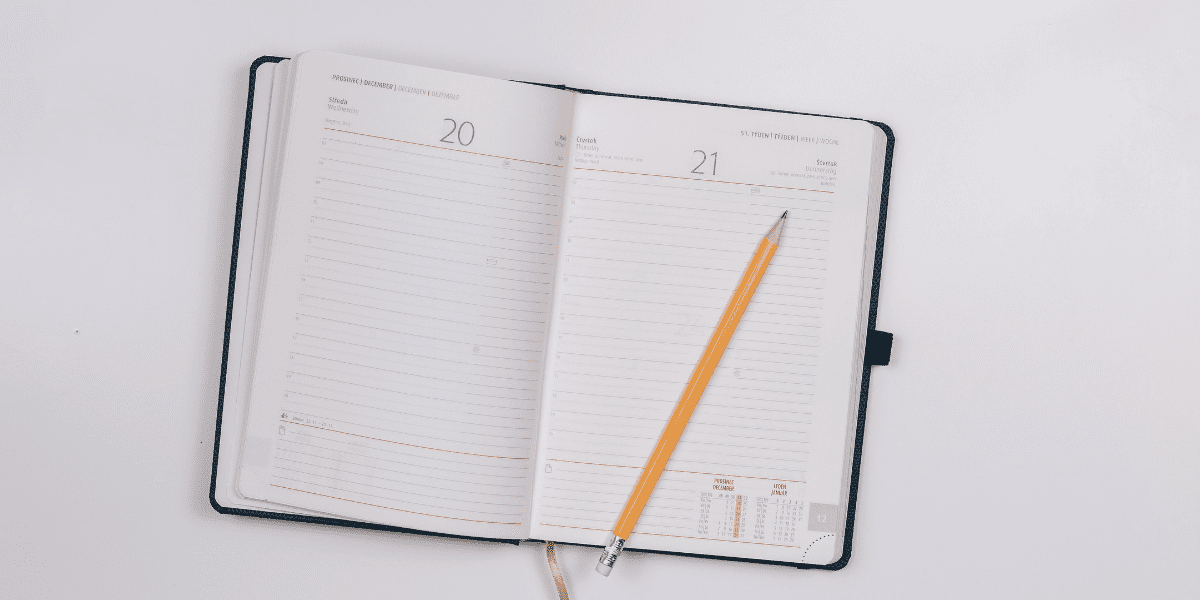Does Eating Too Much Cheese Make You Blind
Reading Time: 8 minutes
Finding it difficult to control your eating?
Struggling to understand your unhealthy relationship with food?
Seeking out effective and easy strategies to stop your binge eating behaviour?
The fact that you've recognised there might be a problem and that you're reading this article is an excellent sign that you're ready to embrace healthier eating habits!
And with the 6 step-by-step techniques below, you'll be well equipped to tackle binge eating. These techniques are actually scientifically proven to be effective in breaking the binge eating cycle.
But first, you can't stop binge eating without understanding what it is and what's behind the habit. So let's get into it.
What is binge eating, and what is causing it?
Put simply, binge eating is eating uncontrollably. There are two types of binge eating episodes: objective binge eating and subjective binge eating 1 Fairburn CG. Overcoming binge eating. London, UK: Guilford Press 2013. .
With more than one in 20 people engaging in binge eating, this isn't a problem affecting just a few.
Objective binge eating
You're eating unusually large amounts of food (about 2,000 calories or more) in a short time frame (under two hours), and the entire episode feels like you're just operating on autopilot.
Subjective binge eating
You're eating what you think is an excessive amount of food but, in reality, is not objectively large. That same sense of a loss of control is still there.
Other characteristics of binge eating include:
- Feeling like you're eating "forbidden" food – usually high calorie and very palatable.
- Eating at a much quicker rate than how you'd normally eat.
- Eating when you're not at all physically hunger.
- Feeling pleasure during a binge, but overwhelmed with immense guilt and shame afterwards.
- Feeling a sense of secrecy to your behaviour – and you'll go to great lengths to hide it 2 Grilo CM, Ivezaj V, White MA. Evaluation of the DSM-5 severity indicator for binge eating disorder in a community sample. Behaviour Research and Therapy. 2015;66:72-76. .
If you're nodding your head to these traits, you might be begging to know: what is going on here? Why do I engage in these behaviours?
Understanding the factors behind your behaviour is an important part of changing that behaviour; targeting these factors will have a "flow on" effect in reducing your binge eating episodes.
There are three broad "maintaining factors" – that is, factors that contribute to the persistence of binge eating 3 Fairburn CG. Cognitive behavior therapy and eating disorders. New York, NY: Guilford Press 2008. :

Shape and weight overvaluation
"Who I am depends on what I weight"
This is when you're basing your self-worth largely on your weight or shape.
Whereas most people tend to evaluate themselves on a variety of life domains, like work performance, friendship groups, or sporting capabilities, you evaluate your self-worth largely on how much you weigh or how you perceive your body.
Such a belief system can lead to obsessive self-weighing or unrealistic social comparisons. It also encourages extreme dietary behaviours 4 Fairburn CG, Cooper Z, Shafran R. Cognitive behaviour therapy for eating disorders: A "transdiagnostic" theory and treatment. Behavior Research and Therapy. 2003;41:509-528. .
In fact, 23% of Australian women report an overvaluation of weight and shape.
Dietary restraint
Food avoidance. Fasting. Calorie deprivation.
Sound familiar?
That's because they represent the demanding "food rules" we apply to dictate what, when, and how much we can eat.
How do these dieting tendencies influence binge eating?
These diet rules ("avoid chocolate at all times") are so hard to sustain long-term that when you finally break them ("oops, I ate a Kit Kat!"), you figure you may as well go the whole hog ("might as well finish off the packet and start fresh tomorrow") 5 Polivy J, Herman CP. Dieting and binging: A causal analysis. American psychologist. 1985;40(2):193. .
This reaction is the cause of binge eating.
The result: shame, guilt, and worthlessness.
You might be down on yourself for your lack of self-control. You might fret about the impact of a binge on your weight and body shape. So you make a conscious decision to follow your diet even harder tomorrow.
And then the cycle continues 6 Fairburn CG. Cognitive behavior therapy and eating disorders. New York, NY: Guilford Press 2008. .
Sudden mood fluctuations
Find yourself suddenly sad? Lonely? Stressed?
These moods also have a direct impact on your binge eating behaviourr 7 Stice E. Risk and maintenance factors for eating pathology: a meta-analytic review. Psychological Bulletin. 2002;128:825-848. .
It's exhausting enough dealing with these strong emotions, let alone trying to maintain strict diet rules. So you give yourself a reprieve. But abandoning these rules makes you prone to disinhibited binge eating.
Not to mention, eating delicious food is a temporary mood booster. We forget briefly why we're feeling a certain way.
But you might take it to the extreme, so we need to help you come up with more adaptive ways of coping with negative mood states (without resorting to binge eating).
6 proven steps to stop binge eating
And with that, it's time to move into the proven steps you can take to stop your binge eating.
(If you're looking for advice on what to do immediately after a binge eating episode, click here.)
These steps come from evidence-based cognitive-behavioural treatment manuals for binge eating, so you can follow them confident they'll help you get into a better space.
It is better to follow the steps in order, particularly because there is good evidence to show that focusing on modifying your behaviour before your thoughts is a good determinant of future success.
Step 1: Take a step back to observe and understand your behaviour

How to do it? Without careful monitoring, it's impossible to remember precise details. So diaries are a great idea to help you pinpoint the precise things that are going on before, during, and after a binge.
Record:
- Time and date
- What you ate – and drank
- Where you were
- Whether you viewed it as a binge
- Any other comments that may help you better understand your current eating behaviour, such as how you were feeling at the time or what your energy levels were like.
Remember, if you're serious about this, it's important to monitor consistently until you've regained control of your eating.
Monitoring will allow you to understand and identify the precise factors that are triggering your binge eating behavior. Knowing exactly what's going on prior, during, and after a binge is one of the most important thing needed to change, because you'll know what you need to work on in order to stop your binge eating.
If you don't monitor, you're going in blind, hoping to eventually address the things that are driving your binges. This is clearly inefficient!
Monitoring will set you up for quick and lasting change.
Step 2: Don't skip your meals!

Aim to eat at least three meals and three snacks a day, no more than 3-4 hours apart.
Eating regularly combats two dangerous dieting behaviours: delaying eating (such as fasting or skipping meals) and caloric restriction (such as undereating).
Studies have shown that these two dieting behaviours can lead to many negative health outcomes, including binge eating, psychological impairment, depression symptoms, and anxiety symptoms.
Eating regularly and flexibly will help you gain more control over your eating by eliminating problematic forms of dieting, minimizing any urges to binge, and reducing your frequency of binge eating.
Plus you'll love the sustained energy you'll have throughout the day!
How to do it? Plan! Plan! Plan! Each night, plan and write down when you're going to eat your meals and snacks. Don't stress about what to eat, because the initial focus is on gaining momentum, stability, and regularity.
We'll cover how to modify the contents of your food in Step 4.
You might want to eat based on your body signals (such as when you're hungry). But these signals are usually disrupted in those who binge, which means you'll find it hard to distinguish between hunger and satiety.
That said, once you've adopted a consistent pattern of regular eating, these cues should eventually return, making you much better able to follow a pattern of intuitive eating.
Step 3: Address your problems

Finding it tough to handle a bad situation effectively? If so, learning effective problem solving might be a good idea.
Remember, binge eating is predictable: it usually occurs either after (a) an all-or-none reaction to a dietary rule break and (b) our mood fluctuates and intensifies.
Working through these tough times effectively and healthily may help prevent these predictable binges.
How to do it? Problems can often seem overwhelming and impossible to surmount but don't forget you're not alone.
This may be a helpful 4-step guide to problem-solving (with an example):
-
- Identify the problem: My partner and I always fight – I'm home alone left feeling so frustrated all the time.
- Think about a range of possible solutions to the problem: I could either: eat, watch TV, go on social media, or go for a walk.
- Carefully think through each solution's implication:
- Eat: This isn't a good idea because, in the past, when I eat I usually overindulge to help soothe my frustration.
- Watch TV: There's nothing really on TV at the moment, so I'll probably get bored and have an urge to eat instead.
- Go on social media: I'm not feeling the best about myself at the moment, so jumping on Instagram and seeing other people having fun would probably worsen the situation.
- Go for a walk: A walk will remove me from temptation and well help blow off some steam.
- Pick the best solution(s) and act on it: I'm going to go for a brisk walk – 45 minutes at least!
Step 4: Accept your situation by meditation

Ever considered meditating your way through a bad mood?
If so, fantastic – meditation can be a powerful tool to help you deal with the sudden stressors and anxieties that we encounter on a day-to-day basis.
Meditation forces you to sit back, relax, and better recognize, accept and embrace the inner workings of your mind.
In other words, it prevents you from impulsively resorting to a binge (or any other destructive behavior) whenever something stressful is going on or when something doesn't go according to plan.
So whenever you notice a sudden shift in mood states, feel an overwhelming sense of stress, or take a hit to your self-esteem, try to resort to a small session of meditation.
There are so many excellent meditation apps out there, freely available for you to download.
Do this meditation session either before or after you've problem solved your way through these negative experiences.
It will keep you grounded and, with enough practice, prevent the urge to binge.
Step 5: Tackle your food anxiety
Do you have tasty "forbidden foods"? Why do you have a "forbidden food" list at all? After all, no food in isolation causes weight gain.
Perhaps it's because these foods are binge-eating trigger foods that cause you considerable grief and anxiety.
Gradual exposure to these foods and reintroducing them into your diet (in moderation) will help get rid of the anxiety around certain foods and their potential to trigger a binge.
How to do it? Create a list of your forbidden foods. Rank them in order from "most forbidden" to "least forbidden". Slowly reintroduce the foods from the "least forbidden" list into your diet.
For example, if cereal is on your "least forbidden" food list (but you're still concerned about eating it), put a small handful of cereal in your regular breakfast smoothie. Gradually, you'll realise that nothing catastrophic happens if you eat the cereal.
You'll have proven your irrational belief that eating cereal causes weight gain!
The anxiety around that food may diminish and you could start to enjoy a more rounded diet – and life!
Keep it up for the other foods until there's no more anxiety. They won't be a binge eating trigger for much longer.
Remember, this will take time. Don't expect success overnight. But you will start to notice that you have less anxiety as you gradually reintroduce foods. I promise.
Step 6: Immerse yourself in joyful activities

OK, let's move away from this intensive focus on your weight and shape to evaluate your self-worth and start looking at other aspects of your life.
If you can broaden your scope of self-evaluation by increasing the importance of other life areas, your need to diet may diminish – and with it, your binge eating episodes.
How to do it? Think about activities that make you happy, bring you joy, and that interest you.
Some examples could be….
- Competitive powerlifting
- Joining a football club
- Taking dance lessons
- Taking up yoga
- Taking up Quidditch (it IS a thing!)
- Building puzzles
Make a list of these – as long as possible. Be creative!
Which one are you going to commit to trying?
The point of these activities is to give more meaning in your life, independent of weight and/or shape cues.
Eventually, if you devote enough energy to these activities, you may start to realize what the more important things are in life. Your craving to control your weight and shape could diminish. Once it does, this will undoubtedly have a positive effect on your eating behaviour.
Moving forward
Implementing these steps will take time, so be patient. But I have every confidence that you'll start to see improvements in your health, mental state, and lifestyle soon.
Now I'd like to turn it over to you.
What are you finding most challenging regarding your eating habits?
Let me know by leaving a comment below right now.
Lastly, be sure to check out these amazing eating disorder books to continue your educational journey.
Does Eating Too Much Cheese Make You Blind
Source: https://breakbingeeating.com/stop-binge-eating/